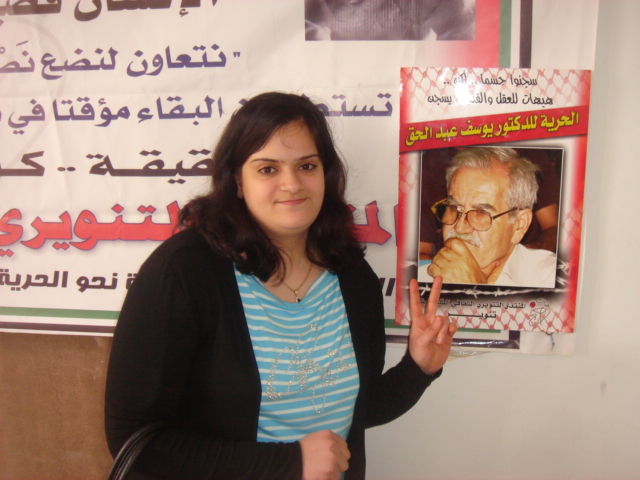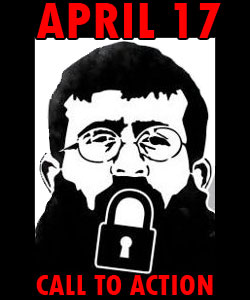Tag: Prisoner Rights
-
The price of intellectual resistance
by Sylvia 14 April 2012 | International Solidarity Movement, West Bank “Our souls are not devastated, we are hanging on” On the 7th November 2011, founder of the Palestinian Cultural Enlightenment (Tanwer) and lecturer at the An- Najah University, Dr. Yousef Abdul Haq, was arrested from his home at two o’clock in the morning. Dr. Yousef…
-
42 days of hunger strike: Take action to save Hassan Safady from dying in administrative detention
by Silvia and Andreas 13 April 2012 | International Solidarity Movement, West Bank Please SUBMIT pictures in solidarity with Hassan Safady FREE HASSAN SAFADY FREE ALL PRISONERS IN ADMINSTRATIVE DETENTION Today Hasan Safady entered into his 42nd day of hunger strike. Ten months ago, he was brutally arrested from his home in the old city…
-
Call for international action: Show your support on Palestinian Prisoners day
12 April 2012 | International Solidarity Movement This week International Solidarity Movement is calling for international solidarity in the run up to Palestinian Prisoners Day on the 17th April. The Palestinian prisoners struggle needs immediate international attention as Israel’s treatment of prisoners under a military judicial system starkly violates international law and fundamental human rights. …



